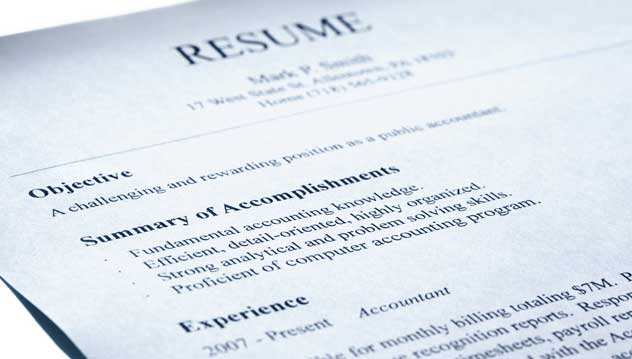To get that top position, I need an impressive resumé. Who can help me put one together? What documents should I include to catch the recruiter’s eye? For example, is it a good idea to attach a portion of my personality test results?
We got the answers from Mélanie Paquet who works as a career management professional at Brisson Legris, Unveiling Potentials, a company that helps workers find their true calling.
First off, you should know that there’s no way to build an impressive resumé if you haven’t got the right experience. This document should describe what you’ve done so far, not more. If your resumé is amazing but doesn’t quite reflect your actual experience, you run the risk of disappointing the recruiter during the interview. The potential employer won’t trust you if they get the impression you’re promising more than you can deliver.
Here are a few more basic rules for creating a really effective resumé:
1. Keep it down to two or three pages.
2. Write clearly and concisely.
3. Use the job posting to help you tailor your resumé and include the recruiter’s vocabulary. If they’re looking for experience managing budgets or employees, make sure you use these words explicitly.
4. On the first page, right under your contact information, include a little summary of your resumé. This 5-7 line synopsis should list your professional experience directly related to the position you are applying for.
Don’t go it alone
Career counselling centres are great places for getting help with your resumé. The process usually involves meeting with a professional who can help you find the best way to present your past experience so that it relates to the job you want now. Alternatively, private companies that specialize in professional resumé writing often have career counsellors and human resources specialists on staff.
While the bookstore may seem like another great place to start, beware of resumé writing guides from other countries since they may contain tips that aren’t relevant in North America. For example, you might find some that suggest including a photo along with your age and marital status. While this might be the norm elsewhere, it isn’t necessary in Canada and could even lead to discrimination. If you’re looking for guidelines that apply to Canada, check out the Resumé page on Jobboom’s Career Zone site (http://career.jobboom.com/).
You can also find good advice on other websites, such as CanLearn (https://www.canada.ca/fr/emploi-developpement-social/services/aide-financiere-etudiants.html).
Keep it simple
The only thing you need to attach to your resumé is a cover letter. Don’t even think about sending your personality test results (not even partial results). This kind of information is too personal and could work against you if it is misinterpreted. However, if the job you want requires good stress management, you can always mention that you’ve taken a personality test and scored well in this area. Then let the employer conduct their own tests if they want.

